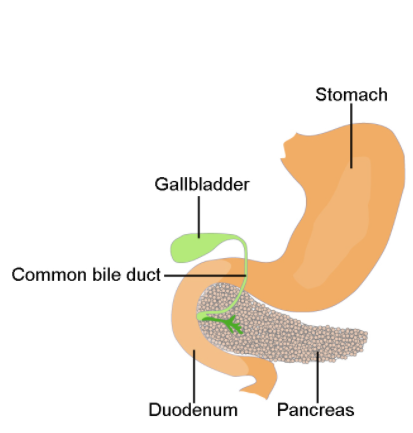Lipase- Pancreatitis Test

Question 1. What is pancreatitis?
Pancreatitis is inflammation of pancreas the organ under your spleen on the left rib cage. It is very important organ in the production of insulin (diabetes hormone) and a number of hormones and proteins (enzymes) involved in digestion of food, particularly fat.
Pancreatitis can result from virus, toxins, and alcohol or blockage of bile ducts from gall stones.
When pancreas is inflamed we are unable to digest fat in a normal way and this can lead to impaired absorption of fat, vitamins, other nutrients and water resulting in diarrhoea and electrolyte disturbance.
When pancreas is badly damaged it can lead to diabetes and the need for long term insulin treatment.
Question 2. How do I know I have pancreatitis?
Pancreatitis is one of the causes of abdominal pain, nausea, loos of appetite and vomiting. Classical pain occurs in upper abdomen and can easily be confused with gastric reflux or peptic ulcer disease. Occasionally abdominal pain is diffuse all over abdomen or tummy and moves to the centre of back.
One should suspect pancreatitis following alcohol consumption and chronic alcohol use. Pancreatitis should be considered in patients with gall bladder disease.
Question 3. What are the blood tests for pancreatitis?
Lipase is an enzyme exclusively produced in the pancreas. Hence when pancreas is damage increased amounts of lipase is release and this enzyme leak into blood and used as a marker of pancreatitis.
Question 4. How is the tests done?
Lipase is measured from a small sample of blood taken in the arm. A small blood sample of about 5-10mls is taken. No special preparation is required. Often this is done together with other basic chemistry tests including kidney, liver, diabetes, gout, calcium and cholesterol.
Question 5. What other blood tests are available?
In some laboratories amylase is used as a tool for pancreatitis. This test is now becoming obsolete as it is a non-specific and elevated in a number of abdominal pathologies not related to pancreas inflammation.
Other diagnostic tests include ultrasound and CT scan.
Question 6. What is the treatment for pancreatitis?
In most cases, treatment involves replacement of fluids, electrolytes and control pain, nausea and vomiting. Occasionally treatment is directed at cause of pancreatitis, e.g. gall stones or cancer.


